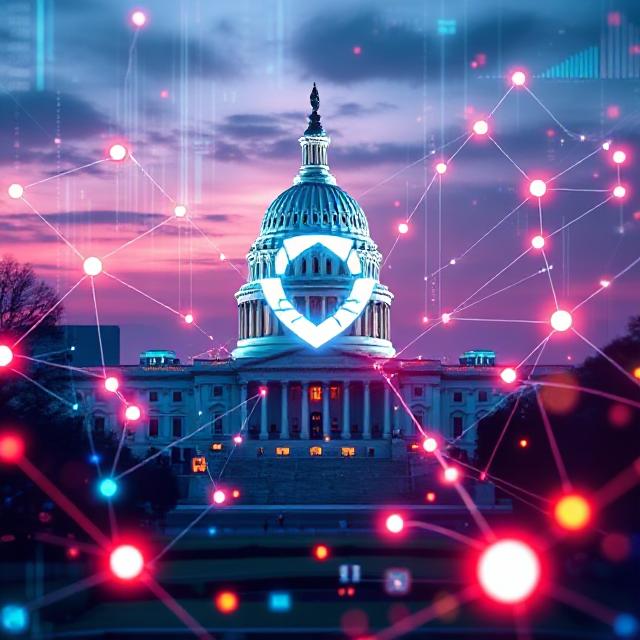
TL;DR
- Disney and Universal have filed a landmark lawsuit against AI image generator Midjourney, accusing it of copyright infringement.
- The studios claim Midjourney trained its AI models on their copyrighted characters without permission.
- Disney and Universal seek $150,000 per infringed work and an injunction to prevent further misuse.
- Midjourney reportedly has 21 million subscribers and earned $300 million in revenue last year.
Hollywood Studios Take Legal Action Against AI Image Generator Midjourney
Disney and Universal Pictures have initiated a major legal battle against the AI photo generation company Midjourney, marking the first significant lawsuit filed by major Hollywood studios against an AI technology firm. The complaint, filed Wednesday in a federal court in California, alleges that Midjourney’s AI models were unlawfully trained on copyrighted images owned by the studios and that the platform generates unauthorized reproductions of their iconic characters.
This lawsuit reflects rising tensions between content creators and AI companies, as many industries grapple with intellectual property rights in the age of generative AI. Midjourney enables users to produce highly realistic images from text prompts within seconds, making it one of the most popular AI art tools on the market.
Allegations of Copyright Infringement and “Plagiarism”
In the complaint, Disney and Universal accuse Midjourney of functioning as a “virtual vending machine” and a “bottomless pit of plagiarism,” generating “endless unauthorized copies” of copyrighted works. The studios specifically cite characters like Star Wars figures, Bart Simpson, Shrek, Ariel from The Little Mermaid, Wall-E, and the Minions from Despicable Me among the allegedly infringed content.
This legal move is part of a broader wave of challenges from artists, musicians, authors, and performers concerned about AI tools using their work or likeness without permission. In 2023, Midjourney faced a separate copyright suit by a group of visual artists, which remains in discovery. However, this marks the first instance of major Hollywood studios suing an AI image generator.
Midjourney’s Response and Industry Context
While Midjourney did not immediately comment on the latest lawsuit, in response to the 2023 artists’ suit, the company argued that any single AI-generated image represents only an “infinitesimal fragment” of the model’s training data, much like a human artist’s imagination is informed by a wide range of influences.
Despite these defenses, Disney’s legal team emphasized that their case rests on straightforward copyright infringement. Horacio Gutierrez, Disney’s senior EVP and chief legal officer, stated:
“We are bullish on the promise of AI technology and optimistic about how it can be used responsibly as a tool to further human creativity. But piracy is piracy, and the fact that it’s done by an AI company does not make it any less infringing.”
Midjourney’s Scale and Revenue
The complaint reveals that Midjourney boasts over 21 million subscribers worldwide and generated approximately $300 million in revenue last year. Disney and Universal assert they previously requested that Midjourney cease infringing activity or implement technological safeguards to block generation of images featuring their intellectual property. According to the complaint, Midjourney ignored these requests.
Calls for Technological Safeguards and Industry Standards
Disney and Universal highlight that Midjourney already enforces content moderation policies to prevent distribution of violent or explicit content. Other AI companies have incorporated copyright protection measures to respect creators’ rights, the studios claim.
The lawsuit seeks statutory damages of up to $150,000 per infringed work and a permanent injunction against Midjourney to halt future copyright violations. The complaint’s exhibit lists over 150 copyrighted works allegedly misused, suggesting potential damages exceeding $20 million.
Midjourney Copyright Lawsuit Overview
| Metric | Value | Source |
| Number of Midjourney Subscribers | 21 million | Complaint Filing |
| Midjourney Revenue (2024) | $300 million | Complaint Filing |
| Statutory Damages per Work | $150,000 | U.S. Copyright Law |
| Number of Allegedly Infringed Works | 150+ | Complaint Exhibit |
| Previous Lawsuit Against Midjourney | 2023 Visual Artists’ Suit | Visual Artists v. Midjourney |
Industry Implications and Future Outlook
This lawsuit is a watershed moment that could set important legal precedents on the limits of AI training data usage. As generative AI tools proliferate, the balance between fostering innovation and protecting intellectual property rights remains unresolved.
Analysts note that the case may influence other content creators and media companies to pursue similar actions against AI firms. It also pressures AI developers to adopt stricter copyright compliance and transparency in training datasets.
The outcome will likely shape the trajectory of AI-generated content regulation in entertainment and beyond.
Conclusion: The Clash Between Creativity and AI Innovation
Disney and Universal’s lawsuit against Midjourney underscores the growing conflicts surrounding artificial intelligence and copyright. As the entertainment giants defend their valuable intellectual properties, the case highlights urgent questions about the ethical and legal boundaries of AI technologies.
If the courts rule in favor of the studios, AI companies may need to overhaul their training processes and implement robust protections to avoid costly infringement penalties. Meanwhile, the debate over AI’s role in creative industries will continue to evolve in this landmark legal battle.






